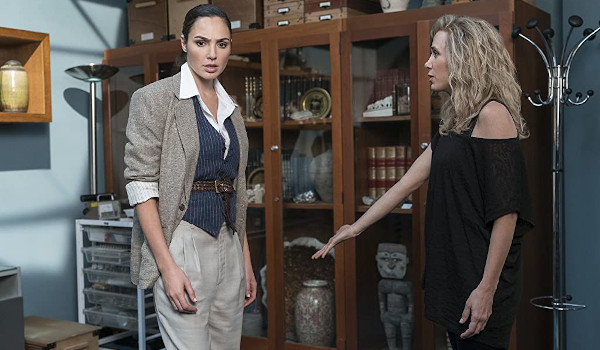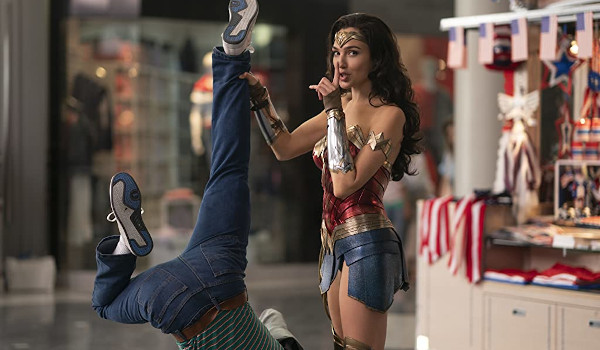- Title: Wonder Woman 1984
- IMDb: link

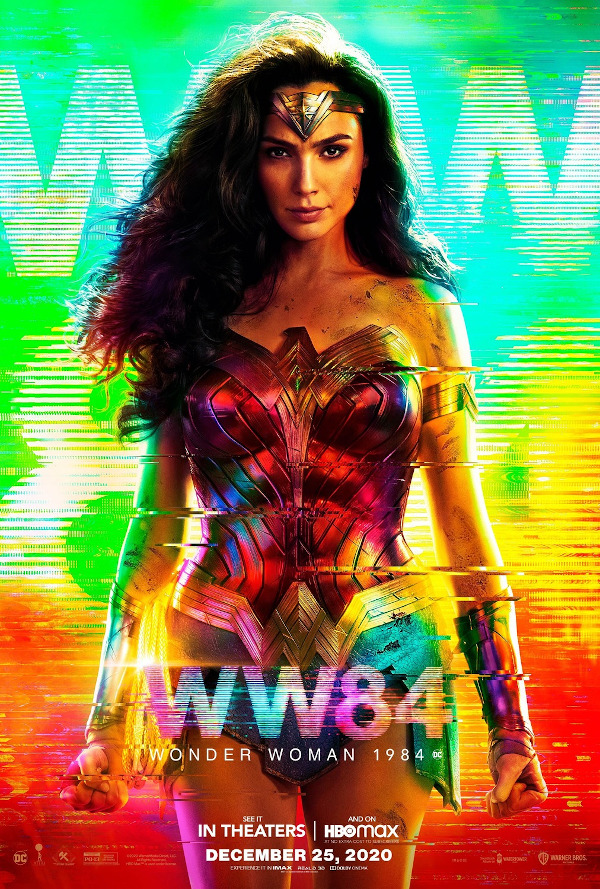 2017’s Wonder Woman proved to be the pleasant surprise to shine some light in DC’s otherwise gloomy extended universe. Director Patty Jenkins and star Gal Gadot reunite for a sequel set in the 1980s (apparently primarily for the purpose of making fun of the decade’s fashion sense). Gadot seems more confident in the role, hits the right emotional beats, and the sequel taps into primary motivations of the character while introducing one of the Amazon’s most famous possessions in the Invisible Plane. So why isn’t Wonder Woman 1984 more successful?
2017’s Wonder Woman proved to be the pleasant surprise to shine some light in DC’s otherwise gloomy extended universe. Director Patty Jenkins and star Gal Gadot reunite for a sequel set in the 1980s (apparently primarily for the purpose of making fun of the decade’s fashion sense). Gadot seems more confident in the role, hits the right emotional beats, and the sequel taps into primary motivations of the character while introducing one of the Amazon’s most famous possessions in the Invisible Plane. So why isn’t Wonder Woman 1984 more successful?
The choice to bring back Wonder Woman‘s lost love Steve Trevor (Chris Pine) is a controversial one, but the wishing stone that also turns Kristen Wiig into Cheetah and provides Maxwell Lord (Pedro Pascal) with near unlimited power does work as a catalyst to get things rolling. Trevor’s return forces Diana to confront her own feelings as does the dread that defeating Max may mean saying goodbye to Steve again. It’s a clever way to bring the character back for one more film but other than the personal turmoil it causes Diana, I don’t think the script is helped by Trevor’s inclusion.
Arguably the sequel’s best scene comes at the beginning, in a flashback to Themyscira where a young Diana (Lilly Aspell) competes in an Amazonian competition which teaches her true victory must come from sacrifice and that there are no short-cuts. The idea is meant to spill over to the rest of the film, but it doesn’t fit as well as the trio of screenwriters may have hoped which makes me wonder how many rewrites and edits the film went through before its final cut. Also, the idea of an evil god playing with humanity is raised and then thrown away almost immediately (perhaps to avoid another Amazon vs. God final showdown). Caution, spoilers follow.
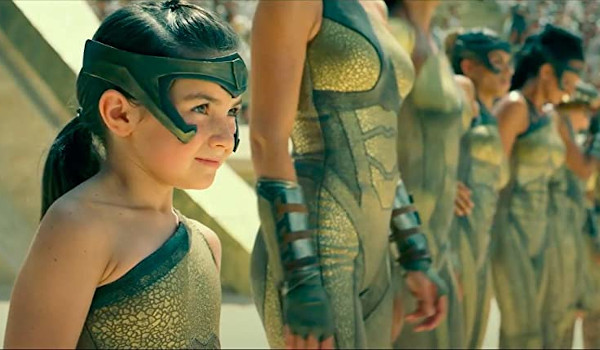
Pascal seems an odd choice for Maxwell Lord, but his version works… up to a point. I’ll admit the kid in me got a kick out of seeing the famous Justice League International character get a nosebleed while twisting the world to fit his vision. The movie character’s main problem is that he seems to have no ultimate objective making him a poor substitute for the original comic character. The loving absentee father subplot never takes hold completely, as we never see more than token affection for his son (Lucian Perez), which is a problem leading into the film’s climax.
Just as problematic is Wiig’s scientist turned super-villain (and I’m not just talking about the awkward make-up/CGI look to Cheetah). While it certainly makes sense for Barbara to initially refuse to give up her power, which would actually make her an ally rather than adversary to Diana who also refuses to renounce her wish (but the plot calls for them to fight, so…), the fact that keeping it will end the world should certainly knock some sense into her at some point. Also, having Diana meet and befriend her in the film, rather than allowing for an established friendship torn apart by the wishes of the stone, limits the effect of Diana fighting a friend (who, instead, is a stranger she shared one drink with).
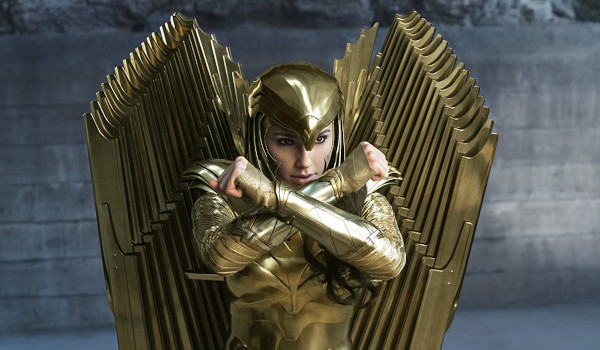
Cheetah’s look isn’t the only special effect issue as there are several fight sequences between Wonder Woman and various bad guys where shots looked either incomplete or slightly off in attempts to render them fully on my television (I can only imagine how bad they might look on an IMAX screen). The first two action sequences aside, the race on Themyscira and the mall fight, in nearly every other lengthy action sequence there exists at least one shot which is not quite up to snuff. The film’s conclusion, focusing on Diana’s sacrifice and her argument for truth over lies certainly tie into core concepts of the character. However, the set-up could have built a stronger foundation, if this was to be the key point of the film, and it’s a little unclear how Wonder Woman is communicating through Lord to the entire world (remember, the camera has long been destroyed at that point).
Despite its issues, Wonder Woman 1984 is still a fun film and Maxwell Lord offers a different type of villain who is a nice change of pace. It delivers several impressive action sequences, even with the spotty CGI, and continues the theme of Wonder Woman fighting for humanity who still haven’t quite figured out selfishness isn’t a solution to anything (those selfish folk include women, not just men, this time around). However, the return of Trevor (despite everything Chris Pine brings with him) does overshadow much of the film and place Diana in the unenviable position to be a selfish girlfriend for too much of the plot. While still better than anything Zack Synder has added to the universe, it’s hard not to see Wonder Woman 1984 as a step backwards from the first film.

